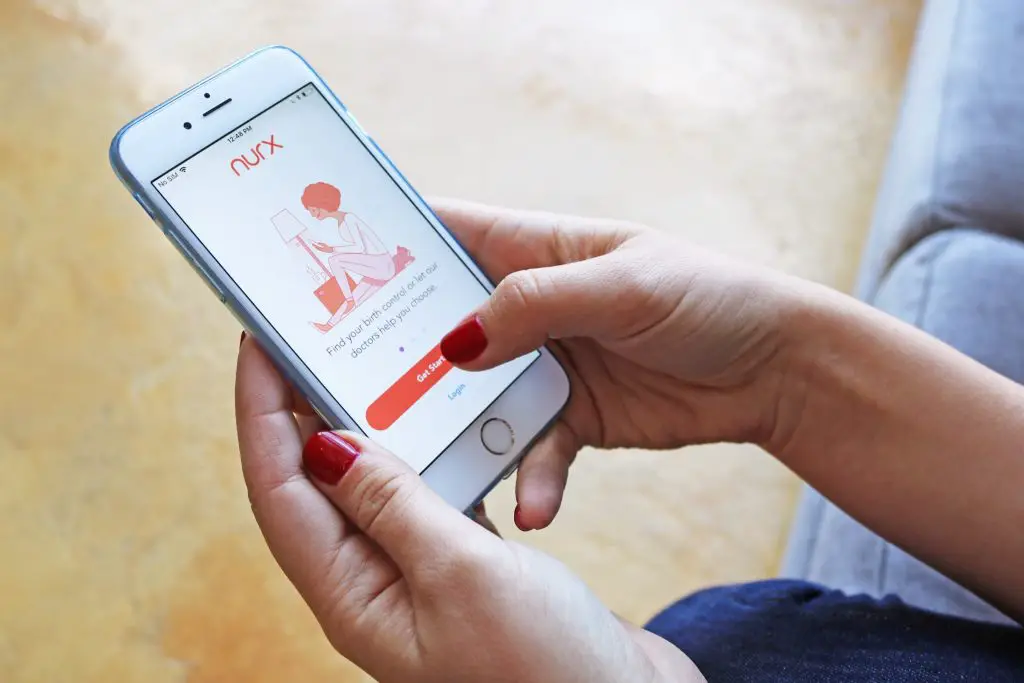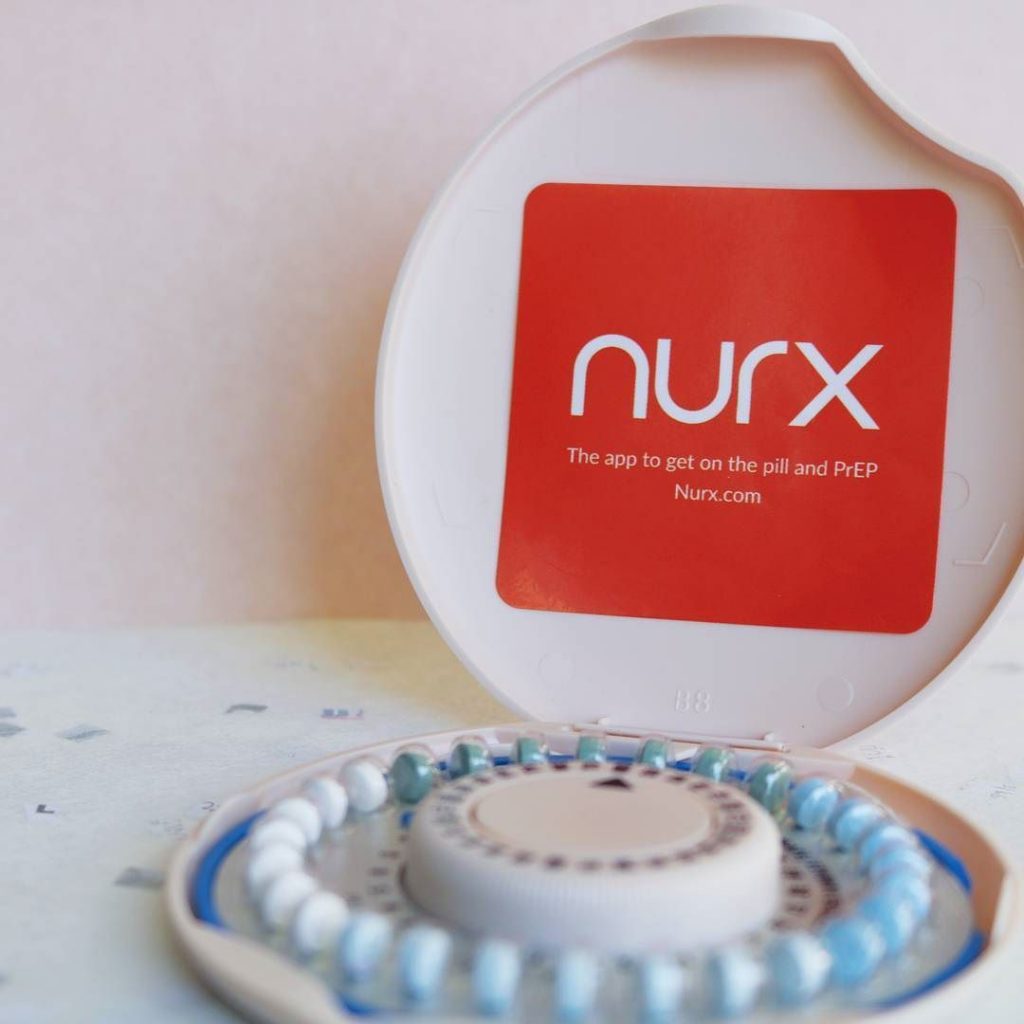For those of you struggling to access birth control, have no fear: Nurx is here! The San Francisco-based telemedicine company, which launched in 2014, strives to provide users with easier access to contraceptive services. Nurx is sometimes called the Uber for birth control considering its convenient practice of delivering birth control right to your doorstep.
The service is currently available in 17 states and Washington, D.C., and can be accessed online or through the Apple store. Though their reach is somewhat limited right now, the company hopes to expand their services to other states and Android platforms in the future.
At the moment, the company is paying special attention to states with the most hurdles barring people from accessing birth control, particularly states that are Republican controlled. Nevertheless, they hope to expand to all states eventually, and are doing so relatively quickly.
How Does Nurx Work?
To access Nurx’s services, users must select their preferred birth-control brand (of which 50 are offered), answer health questions and input a recent blood-pressure check. A doctor in the user’s state will then review the information and determine which contraceptive will work for them.
Then, after a few days, the user’s desired form of birth control will show up right at their door. The company offers daily oral contraceptive pills, rings, patches, emergency contraceptives — also called the “morning-after pill” — and even a pill to prevent HIV called pre-exposure prophylaxis (PrEP).
Getting birth control through Nurx is incredibly affordable for patients. Per the Affordable Care Act, birth control is free for people with insurance, but uninsured patients are also able to benefit from the service. Without insurance, users can get their medicine starting at $15 per month. Either way, the service itself is free.
Nurx is also convenient for people who do not have time or otherwise do not wish to visit a gynecologist for a yearly checkup. Beyond convenience, the company provides peace of mind and the ability to be completely in charge of one’s health.

Who Does Nurx Benefit?
What makes Nurx remarkable is its commitment to providing contraceptive access to underserved communities, mainly those without regular financial or physical access to a gynecologist.
People of color, disabled people, trans folks and sex workers are only some of the people who benefit from affordable and easy access to birth control. For these groups, as well as for anyone in a compromising situation, broadened contraceptive access can be life-changing as well as life-saving.
In addition, this reliable service is vital for rural residents who live in contraceptive deserts. Texas is a particularly crucial state for Nurx to operate in due to its size and percentage of rural areas, in addition to its high maternal mortality rate (the highest of any state) and high teen pregnancy rate.
Reproductive health care is also severely restricted in the state, so it’s no surprise that one of the biggest influxes of new customers occurred right after their launch in Texas.
Requiring access to an app or website limits the company’s reach, since many people simply do not have the money for a device, much less Wi-Fi, so there are still some barriers for the most vulnerable populations. However, their broadening of access is a start and does still benefit many people who do not have countless opportunities to be in charge of their health.
Controversies
Unsurprisingly, there is some opposition to Nurx’s practices and goals. The main controversy surrounding the company relies on a lack of scientific understanding.
Anti-abortion groups are primarily up in arms about the service offering emergency contraceptives (ECs). Of course, the debate over the morning-after pill existed long before the company was founded, but the increasing popularity of the company has reignited concerns.
Detractors insist that these pills are essentially the same thing as abortion pills despite their official classification as contraceptives by the FDA. Pro-life activists believe that ECs prevent fertilized eggs from implanting in the uterus, which they feel is equivalent to abortion or homicide.
John Seago, Texas Right for Life’s legislative director, says, “We believe life begins at fertilization. That’s the point where we have an individual, and morally that’s who we want to protect.”

Health professionals have found and generally agree upon counterevidence to these assertions. First, fertilized eggs are not officially the beginning of a viable pregnancy since about half of fertilized eggs never implant in the uterus anyway.
Thus, to count as a pregnancy, a fertilized egg must first implant and stabilize in the uterus. This distinction is important to understand since a viable life is not present if there is no viable pregnancy.
Second, ECs do not prevent a fertilized egg from implanting since they are intended to prevent sperm from ever fertilizing an egg in the first place. The FDA put warnings on EC packages in the early stages of EC development that presented the possibility of the pills disrupting implantation.
The inclusion of these warnings is primarily due to the fact that these pills were not as well studied as they are now, but studies today show that these pills work by delaying ovulation to avoid fertilization.
However, despite these findings, the FDA still has not updated package warnings. European companies have updated their labels to correspond with the studies, but the FDA’s refusal to do so fuels ignorance and opposition to necessary medication.
Aside from scientifically-unfounded assertions, there are other concerns that Nurx’s opponents have. Many parents are concerned by the fact that users only need to be 12 years old to access the company’s services and do not need permission from their guardians to purchase their products.
Considering parents’ wishes to be involved in such a sensitive situation in their children’s lives, it makes sense that they would be upset.
However, for children in severe situations, Nurx’s policy can be crucial to saving them from harm. For instance, victims of abuse or incest can have access to life-saving medicine that otherwise may not be available to them. These kids can’t simply ask their guardian for birth control because their guardian might not be a trustworthy or sympathetic person.

Though it can be argued that these situations are few and far between and do not warrant such lax company policies, these situations still do exist and cannot be ignored. Concerned parents should have these discussions with their children and monitor medicine usage, but Nurx will keep this policy in place for kids who aren’t so lucky to have loving guardians.
Even for children who are choosing to have sex at an early age, preventing access to services like Nurx will not prevent them from having sex — it will just prevent them from having sex safely and can lead to the acquisition of STIs or unwanted pregnancies. Giving them the option to obtain birth control without a guardian’s permission is certainly the lesser of two evils.
Some people also worry that the service will replace doctors and put users in harm’s way. What is often misunderstood, though, is that doctors are involved throughout the entire prescription process and can accurately determine a user’s risk factors remotely.
Additionally, there are some instances in which doctors will tell patients that telemedicine is not a good fit for them due to complicated medical histories.
There are also some doctors that suggest that yearly gynecologist visits aren’t entirely necessary based on medical history, age and other factors. Instead, these visits really only need to occur once every three to five years.
These new findings are good news for people who do not have the money, time or physical/geographical capability to get to the doctor every year, and are also good news for people who are worried about Nurx causing users to skip out on the doctor.
Of course, if you have a history of medical issues or have any concerns about your health, there is definitely a need to talk to a doctor and the service cannot entirely replace an in-person visit. Nevertheless, Nurx is a powerful tool to help bring reproductive health to the areas most in need in this volatile political climate.

















